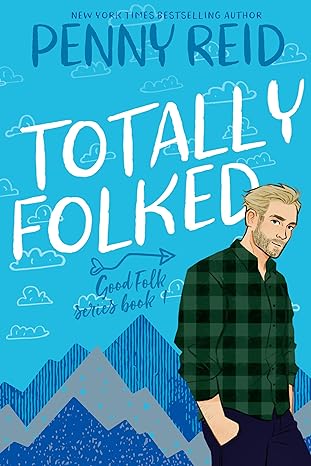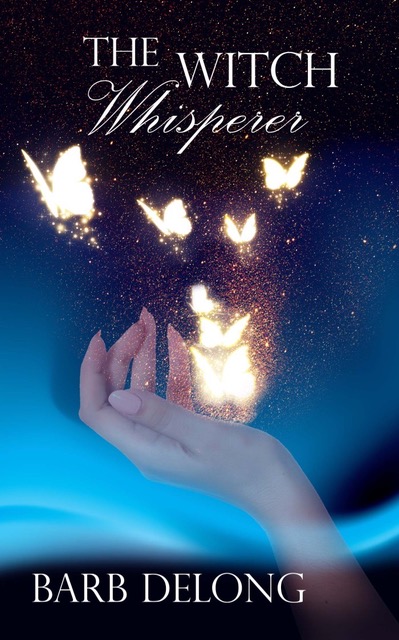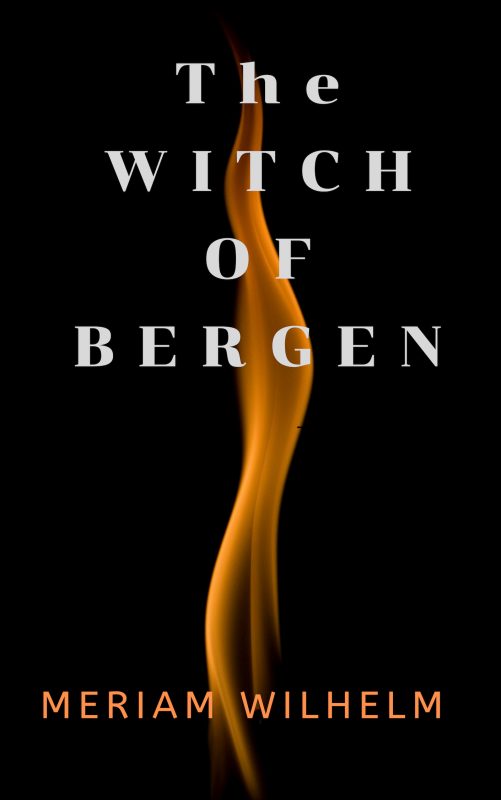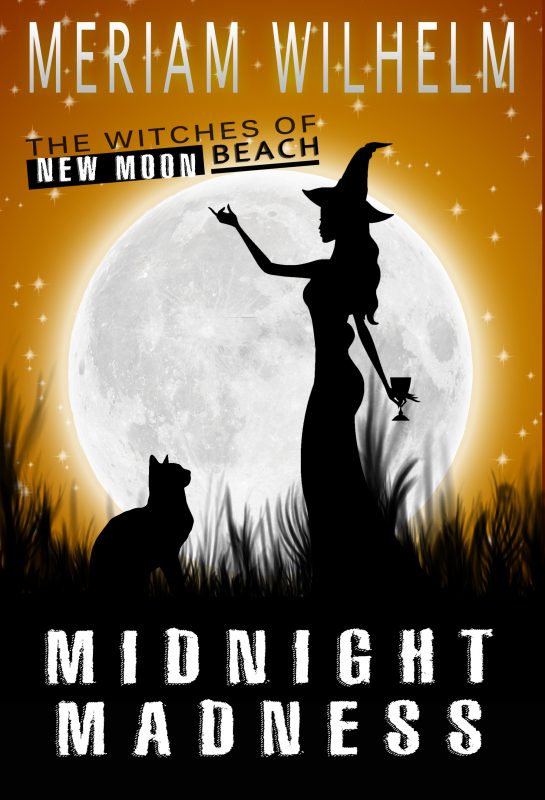Bethlehem Writers Group, LLC January Featured Author of of the Month
January 21, 2020 by Bethlehem Writers Group in category Contests, Featured Author of the Month tagged as 2020 Short Story Contest, AE Decker, Bethlehem Writers Group, Bethlehem Writers Roundtable Short Story Award, Carol L Wrignt, Kitty Bucholtz, Short Story Award, Write Now Workshop
The Bethlehem Writers Group, LLC (BWG), founded in 2006, is a community of mutually supportive, fiction and nonfiction authors based in Bethlehem, Pennsylvania. The members are as different from each other as their stories, spanning a range of genres including: children’s, fantasy, humor, inspiration, literary, memoir, mystery, paranormal, romance, science fiction, women’s fiction, and young adult.
BWG has published five anthologies. Each anthology has an overall theme—broadly interpreted—but includes a variety of genres, and all but the first anthology include stories from the winner(s) of The Bethlehem Writers Short Story Award. Their first anthology, A Christmas Sampler: Sweet, Funny, and Strange Holiday Tales (2009), won two Next Generation Indie Book Awards: Best Anthology and Best Short Fiction.
Besides anthologies and yearly writing contests, the group publishes a quarterly literary journal, The Bethlehem Writers Roundtable, and hosts twice monthly writing workshops and a critique groups for local members. You can see the schedule of BWG meetings and events, including author signings here.
Next up for BWG

BWG is working on their sixth anthology, Fur, Feathers, & Scales: Sweet, Funny, and Strange Animal Tales.
In connection with this anthology, they are hosting The Bethlehem Writers 2020 Short Story Award.
The 2020 Short Story Award opened on January 1, 2020. The theme will be Animal Stories, broadly interpreted. Stories of 2,000 words or fewer about WILD ANIMALS, PETS, or IMAGINARY BEASTS will be welcome (so long as an animal is an important character or element of the story).
The winner will receive $200 and may be offered publication in the above mentioned upcoming anthology. The 2020 Guest Judge is Edgar Award winning and NYT best-selling author Peter Abrahams/Spenser Quinn.
0 0 Read moreAnnouncing the 2020 Short Story Award
January 13, 2020 by Bethlehem Writers Group in category From a Cabin in the Woods by Members of Bethlehem Writers Group tagged as 2020 Short Story Award, Bethlehem Writers Roundtable Short Story Award, Fur Feather & Scales, Peter Abrahams, Spencer Quinn
It’s time!
The 2020 Short Story Award is now open!
Bethlehem Writers Roundtable seek animal stories (broadly interpreted) of 2000 words or fewer.
First Place winner will be considered for publication in their newest “Sweet, Funny, and Strange” anthology:
Fur, Feathers, & Scales: Sweet, Funny, and Strange Animal Tales
The latest of their “Sweet, Funny, and Strange” Anthologies
See Submission Guidelines
The 2020 Guest Judge

Peter Abrahams is the Edgar Award winning author of thirty-eight novels including The Right Side, The Fan, A Perfect Crime, and the Echo Falls series for younger readers.
Under his pen name, Spencer Quinn, he writes the New York Times best-selling Chet and Bernie series, as well as the Queenie and Arthur series for younger readers.
Abrahams was born in Boston, graduated from Williams College, and lives on Cape Cod.
You read an interview of Mr. Abrahams here.
Previous BWR Short Story Award Judges
2012–Jonathan Maberr
2013–Hank Phillippi Ryan
2014–Rebecca Forster
2015–Curtis Smith
2016–Marisa A. Corvisiero
2017–Carrie Vaughn
2018–Kimberly Brower
2019–John Grogan
To submit a story
0 0 Read moreThe Seven Challenges I Love About Writing Short Stories by Jerome W. McFadden
December 13, 2019 by Bethlehem Writers Group in category From a Cabin in the Woods by Members of Bethlehem Writers Group tagged as Jerome W. McFadden, Short Stories, writing, Writing Advice

Multi-award winning Jerome W. McFadden’s has had forty short stories published over the past ten years in a wide magazines, e-zines, and a dozen anthologies. He efforts have won him several national awards and writing contests, receiving a National Bullet Award for the Best Crime fiction on appear on the web in June 2011. His short stories have been read on stage by the Liar’s League in Hong Kong and the Liar’s League in London.
After receiving his B.A. from the University of Missouri, he spent two years as a Peace Corps volunteer in Casablanca, Morocco. Following his MBA from the Thunderbird Graduate School of Global Management (Arizona State University). He continued his peripatetic ways with corporate assignments in Houston, Istanbul, Paris, San Francisco, and Singapore, spending his spare time writing free-lance articles for American and newspapers and magazines. He morphed from journalism to short fiction in 2009. He now resides in Bethlehem, Pa. and is an active member of the Bethlehem Writers Group. His collection of 26 short stories, Off The Rails, A Collection of Weird, Wicked, & Wacky Stories, appeared in November, 2019.
The Seven Challenges that I Love About Writing Short Stories
1) You need to get into the story from the very start:
Every word in a short story matters. Time and space are limited. You cannot afford to waste a page or two describing the weather, building the setting, or giving the genealogy of your hero/heroine. You need to get to the guts of the action quickly, pulling the reader in with the first paragraph. By the end of the first page the reader should be aware of the famous 5 W’s of journalism: Who, where, when, what, with why possibly coming later.
2) You need to quickly define the core of the story:
Short stories follow only one trajectory — one arc — concerning one character (or a small group of characters) traveling through one primary crisis or concern. The crisis or concern is in fact one shattering moment in that person’s (or group’s) life that he/she must work through, successfully or unsuccessfully. Note: That shattering moment does not need to be violent. It could be emotional, psychological, mental, or spiritual, or other. But it needs to be challenging. *
3) You must develop your characters rapidly.
Characters must be construct with complexity, credibility, and emotion—in as little as a sentence or two. The writer must show character development while actively moving through the story’s narrative. You do not have time or space for the big old info dump. Instead, the writer needs to use clever dialogue, interactions, short flashbacks, and sharp imagery to develop the story’s characters.
4) You are allowed only so many characters in the story:
You are limited to a small cast of characters. A full cast might consist of only one or two characters. Any character you decide to introduce must bring something crucial to the story – or be eliminated. Bringing in a characters for “cuteness” or for “color” or just because you like the quirky character in your head, is wasting precious words and precious space in your story. A good rule: Any character that does not bring in two vital elements into the story needs to be eliminated forthwith.
5) Short stories require a strong pace and balance:
Recognize the descriptions and dialogues that slowing the story down, as well those that are those that are moving the story along. You must identify the best place to start, where to put the opening scene that hooks the reader, then maintain that hook to continue to pull the reader through the rest of the story.
6) Short stories teach you to trim the fat:
Short stories leave no time for easing into things (long descriptions, banal conversations, interesting but boring backstory, wild personal tangents). Short stories are just that—Short —but they must always pack a punch. This may be the ultimate skill to be learned from short story writing: Trim the fat. My favorite writing “rule” comes from the legendary writer Elmore Lenonard, ‘Leave out the parts that the readers skip.”
7) A great short story must create an emotional impact:
The stronger the better. And a great twist at the ending helps make the story memorable
An added note: The tools and skill you pick up from writing short stories are assets that can and probably should be used in your novel writing.
*This “shattering moment” is described lovingly and in full detail in Chapter 3 – The Big Key in James Scott Bell’s wonderful book How to Write Short Stories And Use Them to Further Your Writing Career.
A Selection of Books by Jerome W. McFadden
Jack of All Trades? by Christopher D. Ochs
October 13, 2019 by Bethlehem Writers Group in category From a Cabin in the Woods by Members of Bethlehem Writers Group tagged as experience, inspiration, writing inspiration
BWG member, Christopher D. Ochs is our From a Cabin in the Wood’s author. We’re sure you will enjoy his post “Jack of All Trades?”

Christopher D. Ochs’ foray into writing began with his epic fantasy Pindlebryth of Lenland: The Five Artifacts, recommended by US Review of Books. Several of his short stories have been published in the Greater Lehigh Valley Writers Group and Bethlehem Writers Group anthologies and websites. His latest work is a collection of mirthful macabre short stories If I Can’t Sleep, You Can’t Sleep.
His current literary projects include: short stories in Firebringer Press’ next entry in their Eternity anthology series, an e-book prequel novella for Pindlebryth of Lenland, a YA speculative fiction novel My Friend Jackson, and of course, the second novel of the Pindlebryth saga.
Chris has too many interests outside of writing for his own good. With previous careers in physics, mathematics, electrical engineering and software, and his incessant dabblings as a CGI animator, classical organist, voice talent on radio, DVD and anime conventions, it’s a wonder he can remember to pay the dog and feed his bills. Wait, what?
Jack of All Trades?
I recently reflected over all the jobs in my lifetime from which I have received a paycheck. To the best of my recollection, they were:
- dishwasher,
- assembly line loader,
- computer slave,
- photo store salesperson,
- church organist,
- semiconductor electrical engineer,
- software engineer,
- computer software & hardware QA,
- CGI animator,
- and finally, author. (Well, maybe not an actual paycheck in that final case…)
During one particularly unsuccessful discussion with an HR individual, she commented, “Wow, you really are unfocused!” However, I look at it differently. I can truthfully say that I have been blessed, in that every job (after I completed college) has been a profession that I chose to work, and loved doing. That is not to say that some positions had their share of difficulties. There have been occasional instances of professional backstabbing and other malfeasance, plentiful examples of managerial incompetence, and so on. The Peter Principle is alive and well, let me assure you! Despite these workaday frustrations, my work involved in one facet or another one or more intellectual discipline I loved: physics, math, music, computers, and language.
Late in my hopscotch of professions, I began to despair. I felt that I had become the proverbial “Jack of All Trades, and Master of None.” A friend and co-worker made an observation that helped me out of my doldrums immensely. He said, “Your first degree was in physics, right? That means you have the discipline to figure out how anything works.” I’ve found that holds true, but only to a point. It does not help much in my latest choice of vocations, namely writing. Mathematical maxims and the comfort of the immutable laws of physics are notoriously absent.
Somerset Maugham’s (in)famous maxim states, “There are three rules to writing a novel. Unfortunately, no one knows what they are.” How true! To further my confusion, several writing authorities have posited, “Once you know the rules, you know when you may break them.” To borrow a metaphor from “Dungeons & Dragons,” I often feel like a Lawful Good paladin living in a Chaotic Neutral world.
However, I’ve discovered my professional wanderlust has still managed to come to my rescue. My wide experience of work has afforded me the chance to rub elbows with people from all walks of life: from blue collar to white collar, from ditch digger to Nobel prize winner, from unrepentant sinner to bishop. My choices have allowed me to make friends with citizens of all six populated continents.
As a writer, this “Jack-of-All-Trades” life path has afforded me a rich smorgasbord of characters, experiences and observation that I may draw on.
More often than not, we writers are a solitary bunch. I’m guilty as charged as well, as I am not as gregarious as everything above might imply. We huddle in our writing rooms, happy with our keyboard and coffee (or tea). It can become isolating, and that has its own dangers, when we spend too much time in our own head. We are often told to “write what you know,” but if you limit your experiences to your writing shed, it can limit one’s scope. And of course, if you can’t get out and about as much as you’d like, just read the memoirs of other people’s experiences.
So get out. Leap into that new job you’ve been dreaming about. The unemployment rate has never been better, after all. Try a new experience. Learn a new language or craft at your local high school adult program, learn a musical instrument, join a new group, be it a painting klatch or mountaineering club. Volunteer at a food bank or museum. Broaden your experience, and if you remain open and observant, I guarantee you’ll never run out of ideas to inspire your writing.
I hear it’s good for staving off Alzheimer’s as well…
Books by Christopher D. Ochs
Burls by Sally Paradysz
September 13, 2019 by Bethlehem Writers Group in category From a Cabin in the Woods by Members of Bethlehem Writers Group tagged as imperfect, intriguing, nature
From our archives, a post by Sally Paradysz: Burls
This slideshow requires JavaScript.
On the outskirts of the area where I split wood stands a cherry tree. It isn’t huge, but it has at least two burls on it that I can see. I find burls extremely interesting, and at times I can’t stop staring at them. It is a living thing, and something that resembles sap drips from all over it and down onto the forest floor. I have one that I split open years ago, and it is gorgeous on the inside.
Actually, burls are a valuable wood product for artists, furniture makers, and wood sculptors. Some of the most exotic salad bowls and serving bowls I have ever seen are made from burls just like these.
From my book-lined cabin in the woods beside my home, I can see many of these burls standing out proudly from the trees on my land. The sap seems to draw the sunlight to them, and their glow is intriguing. It is yet another example of what can be hidden inside a shell or a human being. Something exquisite emerges once it is opened to be examined. This author of imperfect words wishes that once we open ourselves up to the world, we can walk away with hope and new life passions that will change our life forever……
Sal

Sally Paradysz wrote from a book-lined cabin in the woods beside the home she built from scratch. She was an ordained minister of the Assembly of the Word, founded in 1975. For two decades, she provided spiritual counseling and ministerial assistance. Sally completed undergraduate and graduate courses in business and journalism. She took courses at NOVA, and served as a hotline, hospital, and police interview volunteer in Bucks County, PA. She was definitely owned by her two Maine Coon cats, Kiva and Kodi.
Her book is available here:
Affiliate Links
A Slice of Orange is an affiliate with some of the booksellers listed on this website, including Barnes & Nobel, Books A Million, iBooks, Kobo, and Smashwords. This means A Slice of Orange may earn a small advertising fee from sales made through the links used on this website. There are reminders of these affiliate links on the pages for individual books.
Search A Slice of Orange
Find a Column
Archives
Featured Books
HIS HIGHLAND SURPRISE
A confirmed bachelor with no intentions of settling down...
More info →THE WITCH OF BERGEN
Travel back through time with Carynn Cinnamon as she embraces romance, witchery, mystery, and joy
More info →MIDNIGHT MADNESS
As if Olivia Merriman doesn’t have enough to do in her beloved town of New Moon Beach, now her grouchy great-grandmother has recruited her to head up their coven of witches; her sisters are miffed, the coven is pushing her to accept the job, and to top it all off an evil wizard is messing with her love life.
More info →Newsletter
Contributing Authors
Search A Slice of Orange
Find a Column
Archives
Authors in the Bookstore
- A. E. Decker
- A. J. Scudiere
- A.J. Sidransky
- A.M. Roark
- Abby Collette
- Alanna Lucus
- Albert Marrin
- Alice Duncan
- Alina K. Field
- Alison Green Myers
- Andi Lawrencovna
- Andrew C Raiford
- Angela Pryce
- Aviva Vaughn
- Barbara Ankrum
- Bethlehem Writers Group, LLC
- Carol L. Wright
- Celeste Barclay
- Christina Alexandra
- Christopher D. Ochs
- Claire Davon
- Claire Naden
- Courtnee Turner Hoyle
- Courtney Annicchiarico
- D. Lieber
- Daniel V. Meier Jr.
- Debra Dixon
- Debra H. Goldstein
- Debra Holland
- Dee Ann Palmer
- Denise M. Colby
- Diane Benefiel
- Diane Sismour
- Dianna Sinovic
- DT Krippene
- E.B. Dawson
- Emilie Dallaire
- Emily Brightwell
- Emily PW Murphy
- Fae Rowen
- Faith L. Justice
- Frances Amati
- Geralyn Corcillo
- Glynnis Campbell
- Greg Jolley
- H. O. Charles
- Jaclyn Roché
- Jacqueline Diamond
- Janet Lynn and Will Zeilinger
- Jaya Mehta
- Jeannine Atkins
- Jeff Baird
- Jenna Barwin
- Jenne Kern
- Jennifer D. Bokal
- Jennifer Lyon
- Jerome W. McFadden
- Jill Piscitello
- Jina Bacarr
- Jo A. Hiestand
- Jodi Bogert
- Jolina Petersheim
- Jonathan Maberry
- Joy Allyson
- Judy Duarte
- Justin Murphy
- Justine Davis
- Kat Martin
- Kidd Wadsworth
- Kitty Bucholtz
- Kristy Tate
- Larry Deibert
- Larry Hamilton
- Laura Drake
- Laurie Stevens
- Leslie Knowles
- Li-Ying Lundquist
- Linda Carroll-Bradd
- Linda Lappin
- Linda McLaughlin
- Linda O. Johnston
- Lisa Preston
- Lolo Paige
- Loran Holt
- Lynette M. Burrows
- Lyssa Kay Adams
- Madeline Ash
- Margarita Engle
- Marguerite Quantaine
- Marianne H. Donley
- Mary Castillo
- Maureen Klovers
- Megan Haskell
- Melanie Waterbury
- Melisa Rivero
- Melissa Chambers
- Melodie Winawer
- Meriam Wilhelm
- Mikel J. Wilson
- Mindy Neff
- Monica McCabe
- Nancy Brashear
- Neetu Malik
- Nikki Prince
- Once Upon Anthologies
- Paula Gail Benson
- Penny Reid
- Peter J Barbour
- Priscilla Oliveras
- R. H. Kohno
- Rachel Hailey
- Ralph Hieb
- Ramcy Diek
- Ransom Stephens
- Rebecca Forster
- Renae Wrich
- Roxy Matthews
- Ryder Hunte Clancy
- Sally Paradysz
- Sheila Colón-Bagley
- Simone de Muñoz
- Sophie Barnes
- Susan Kaye Quinn
- Susan Lynn Meyer
- Susan Squires
- T. D. Fox
- Tara C. Allred
- Tara Lain
- Tari Lynn Jewett
- Terri Osburn
- Tracy Reed
- Vera Jane Cook
- Vicki Crum
- Writing Something Romantic
Affiliate Links
A Slice of Orange is an affiliate with some of the booksellers listed on this website, including Barnes & Nobel, Books A Million, iBooks, Kobo, and Smashwords. This means A Slice of Orange may earn a small advertising fee from sales made through the links used on this website. There are reminders of these affiliate links on the pages for individual books.






































































